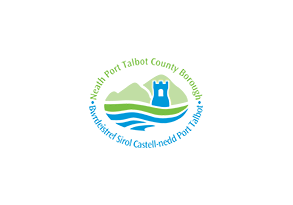| General
· All relevant statutory building checks have been undertaken prior to staff being allowed to re-enter buildings.
· Special consideration must be given to whether employees who are considered to be in a higher risk category which make them more susceptible to Covid-19 as per Public Health Guidance should be permitted to come into work.
Important: For employees who are vulnerable and/or are Black and Minority Ethnic and are therefore considered to be in a higher risk category which make them more susceptible to Covid-19 and are concerned about returning to the workplace, a risk assessment tool has been developed by the Welsh Government which they can complete and share with their Manager. This can then be used as an aide in discussions with the employee to understand any concerns with returning to the workplace and to ensure appropriate control measures can be put in place for the employee to return to a safe environment.
The risk assessment tool can be accessed here
· All persons that are contacted via “Test, Trace, Protect” need to adhere to the guidance given.
Symptoms of Covid-19/ Symptomatic person
· All staff and volunteers are to be made aware of the symptoms of COVID-19 and watch for those symptoms in themselves and others – stay alert. Look for Flu like symptoms – high temperature, new constant coughing bouts and/or a loss or change to your sense of smell or taste.
· If any person/visitor/pupil is suspected of suffering symptoms they should be sent home immediately, or if this is not possible they should be isolated in a separate room (supervised as necessary) until they can be collected. Each school must ensure they have up to date contact details for parent/guardians. Person/visitor/pupil should self-isolate according to the guidance produced by Public Health Wales, and or NHS direct.
· Social distancing from the infected person must be exercised wherever possible to prevent the spread of the infection. Where this is not possible, the appropriate PPE must be worn. Please refer to PPE section of this risk assessment.
· An alternative exit route from the premises has been identified in order to ensure all other primary routes are not potentially contaminated.
· Personal hygiene after contact with the symptomatic person must be exercised to ensure that the spread of the infection is controlled.
· All areas where a symptomatic person has entered are segregated until a deep clean (level 2) is carried out. If it is a classroom, the children can be moved to GF03 (reception classroom).
· AMS cleaning must be notified so they can arrange a deep clean (Level 2) to the affected areas.
· A designated area in the storage section of the blue container has been identified where double –bagged contaminated waste can be stored for 72 hours until it can be disposed of safely with the normal waste. The bags will be labelled with the date to ensure correct disposal.
· The equipment that the pupil/employee has been in contact with must be withdrawn from circulation and thoroughly cleaned and disinfected before being allowed back into circulation.
Access and Egress
· Gatherings in the school playground will be discouraged.
· Ensure there is an appropriate queuing system on entry and exit from the school premises. A member of staff will on duty to remind parents to maintain a social distance. Staff to advise all persons in the queue to maintain a social distance whilst waiting to drop children off at the school gate. Markers going to be placed at 2m gaps. There will be staggered school start and finish times for different cohorts of pupils.
· All parents and guardians of children are advised at drop off to ensure that their children are not symptomatic; if so then entry into the premises will be denied. This has been communicated via letter, school website, Seesaw, Teacher to Parent text and signage.
· Upon entry, each pupil will be required to wash their hands. Each class will use the sink in their classroom Sanitising stations will be available at all entry points. Due to the high alcohol content, the hand sanitiser should be appropriate secured (e.g. wall mounted), if this is not possible it will need to be appropriately supervised to prevent accidental ingestion by pupils. Hand sanitiser with high alcohol content should not be placed in direct sunlight, or near any heat source, as it is highly flammable. There is an up-to-date COSHH assessment available at site.
Social Distancing
· Social distancing must be maintained at all times wherever possible to reduce the risk of the spread of the COVID-19 virus. This includes movement around school, staffrooms, children in classrooms, office staff, bursar, caretaker. Refer to “Neath Port Talbot check in, catch up and prepare for summer and September arrangements” and “Managing Movement around schools” documents.
· Each area of the school will be assessed prior to use, to ensure it is suitable to facilitate social distancing (e.g. number of pupils/staff/desks per classroom etc).
· Due to the size of some corridors within the building, it will sometimes be difficult to keep a distance of 2m when passing another employee. In order to reduce this problem and to limit the amount of time employees are in contact with each other, employees should not congregate or have discussions in corridors.
· Where possible non-contact activities should take place when children are in the activity area(s).
· Weekly rota for class play zones, in place to avoid activities that may encourage close contact at frequent intervals between bubbles. Play equipment must be used weekly by one bubble wherever possible
· Try not to conduct team building type exercises where close proximity is required.
· Careful consideration must be given for any employee/pupil requiring a Personal Emergency Evacuation Plan (PEEP) to return to work.
· In order to avoid the use of shared fridges and taps in staffrooms staff are encouraged to bring in their own food and drink in cool bags. Personal flasks could be brought in by employees for hot refreshments, again reducing the need to use communal facilities.
· The staff room has been assessed and only 4 staff are allowed at any one time. Staff can use the dining hall as an extra staff room and only 10 staff are allowed at any one time.
· Yr 2, Yr 1 staff and HT can used the tea making facilities in the head teacher’s office and the fridge in the corridor to store milk. Yr R/1 staff can use the tea making facilities in the staff room and the staff room fridge to store milk. Nursery staff can use the tea making facilities in the nursery building and the nursery fridge to store milk. Staff should wash hands thoroughly after touching communal equipment and the kettle, fridge and all surfaces should be wiped down after use.
· No sweets/snacks to be brought into work for sharing between staff.
· Only the school clerk should use the second door to enter her office. All staff using the photocopier should enter using the first door. Staff should ensure that they sanitise their hands before using the photocopier. Please be mindful to keep a 2m distance at all times – there will be signage to remind everyone. Use of shared printers/photocopiers to be kept to a minimum. Only one person at a time should be within the printing/photocopying area.
· All staff should adhere to the social/physical distancing measures as far as possible; however, we recognise that when working with younger learners this may not always be possible. In these circumstances high quality 3 layer face coverings may be worn by staff members, however, having regard to the needs of the learner will be important and a specific risk assessment may be required.
Cleaning and Hygiene
· Increased hygiene procedure that will be undertaken throughout the by the teaching assistants will include frequently wiping down of high-touch areas will throughout the day. High-touch areas include bathrooms/ toilets – door handles, taps ect. (not the toilet bowls), tables/ desks /chairs, toys, equipment, door handles, sinks, light switches, etc. Disposable gloves and disposable aprons should be worn when cleaning is taking place.
· Cleaning will take place on the Principle of “Teach Germs a lesson” by using the school cleaning colour coded system. All TAs in the school received this training in July 2020 (Bodily Fluids Training NPT.)
· SCREEN will be made up daily and to the correct dilution rates. Any unused product will be disposed of at the end of the day. An up-to-date COSHH assessment must be available at site.
· All potentially contaminated waste will be placed into a black bag, sealed and placed inside a second black bag and stored in the storage section of the blue container away from all other waste until 72 hours has passed when it will be disposed of in the normal manner.
· All children and adults, including staff must wash/sanitise their hands on entry into the premises.
· Soap, running water and hand drying facilities are available in every toilet and in each classroom that has a sink.
· Hand washing must take place at regular intervals during the day. Signage will be placed in toilets, sinks, etc. to remind pupils/staff to wash for at least 20 seconds. Staff/pupils will be reminded of good handwashing techniques.
· Stocks of hand sanitiser on the premises must be monitored at regular intervals to ensure that stocks do not run out(A. Coughlin and C. Jones*). Request / replace stocks when they are running low, not when they have run out.
· Hand sanitiser must be stored away from ignition sources such as, sunlight, heat, open flames, hot surfaces, sparks, etc. It must be stored in a cool place.
· If stocks of hand sanitiser have run out, ensure there is adequate hand soap and running water that can be used instead.
· Have hand wipes available to use as a last resort.
· A supply of disposable tissues will be available in each classroom. These are to be monitored and replenished regularly. Separate bins for the tissues should be available in each classroom and other key locations around the site. The contents should be emptied daily.
· Pupils will be shown how to catch a sneeze or cough using their elbow or a tissue and reminded to then wash their hands.
Personal Protective Equipment (PPE)
· When using PPE hands must be washed both before and after use.
· Staff who will be required to use PPE will be provided with information on how to don and doff it correctly. Information poster to be provided to schools
Routine activities
- No PPE is required when undertaking routine educational activities in classroom or school settings.
General clean of premises
- Disposable gloves and disposable aprons must be worn.
Suspected coronavirus (COVID-19)
- Gloves, aprons and a fluid-resistant surgical mask should be worn if a child or young person becomes unwell with symptoms of COVID-19 and needs direct personal care.
- Eye protection should also be worn if a risk assessment determines that there is a risk of splashing to the eyes such as from coughing, spitting, or vomiting.
- A Level 2 clean must take place when cleaning the areas where a person suspected of having COVID-19 has been. The risk assessment identifies the PPE required when undertaking this activity as being disposable gloves, disposable apron, FR(IIR)SM and goggles.
Intimate care including administering first aid
- Gloves and aprons should be used when providing intimate care to a child or young person. This can include personal, hands-on care such as washing, toileting, or first aid and certain clinical procedures such as assisted feeding.
- Fluid-resistant surgical mask and eye protection should also be worn if a risk assessment determines that there is a risk of splashing to the eyes such as from coughing, spitting, or vomiting.
- Gloves and aprons should be used when cleaning equipment or surfaces that might be contaminated with body fluids such as saliva or respiratory secretions.
Use of Lateral Flow Devices
· Testing is voluntary, but al staff are strongly encouraged to participate to further reduce the risk of asymptomatic transmission within the workplace.
Movement around/use of premises
· All rooms have windows that can be opened. Windows will be opened by the caretaker before the start of the school day. The classroom staff can close the windows if the temperature becomes too low but all windows and doors will be opened at playtimes, lunch time and whenever the children are outside the classroom.
· Staff/pupils to be reminded to follow the one-way systems in place.
· Fans are not to be used.
· Play equipment / toys that require high levels of shared use (lego, plastercene, building blocks sand play pits) etc. are not to be used.
· Most soft furnishings/ toys will be removed as these are more difficult to clean/ sanitise.
· Shared equipment such a trikes / bike or other ride on toys, are timetabled weekly and are used by a single bubble per week
· Activities that require physical contact should not be conducted.
· Gym mats etc. that encourage shared use should not be used.
· Movement around the school will be kept as low as practicable to minimise the risk of cross contamination in the school environment, and eliminate the need for a deep clean between classes.
· The handling of cash should be discouraged.
· Water dispensers can be used.
Meetings
· Face to face interaction should be reduced as much as possible. If a visit/meeting/work can be done via telephone/skype/teams etc. then this should be considered as the safest method. Otherwise consideration must be given to whether a 2m distance is achievable.
· Avoid non-essential travel around the building e.g. If you need to speak with someone in another part of the building, use the telephone, skype, ‘teams’ etc. to communicate with them.
· All meeting rooms will be kept locked and if needed to be used must be booked the school office. This way arrangements can be made to ensure that the room is cleaned following its use.
· If meetings are necessary, the room should be assessed to determine how many people are permitted to enter meeting rooms whilst maintaining social distancing. If the room has windows these should be opened to improve ventilation.
Mental Health and Wellbeing
· Management will promote mental health & wellbeing awareness to staff during the Coronavirus outbreak and will offer whatever support they can to help.
· Health and Wellbeing during COVID-19 information is available via the home screen on the NPTCC intranet, which provides a wide variety of useful tools such as contact information for support services, online stress control classes etc.
Emergency procedures such as fire, first aid
· The emergency evacuation procedure has been reviewed and communicate to staff/pupils. Fire drills will take place to ensure good practice.
· Ensure there are sufficient numbers of appropriately trained first aiders available. They should follow the training they have received and use PPE as detailed previously. Only deliver CPR by chest compressions and use a defibrillator (if available) don’t do rescue breaths. Practice good hygiene by washing/sanitising hands before and after administering first aid.
Staff Absence:
Should TA staff have to isolate/ or are ill
1. Short term cover can be managed where possible by shuffling existing staff
|


































































